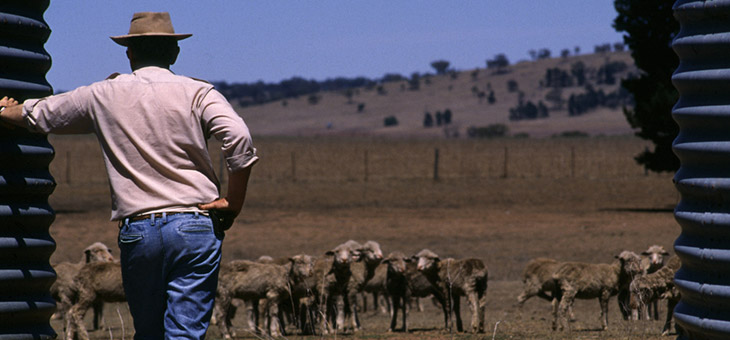The big news this week was the dire warning issued by scientists on the UN Intergovernmental Panel on Climate Change (IPCC) that we have 12 years before we reach a global warming tipping point, after which we all face significantly increased risks of drought, floods, extreme heat, population shifting and poverty.
Climate scientists say we need to ensure global temperatures do not rise more than 1.5°C, because beyond that it will be catastrophic. The authors of the IPCC report released on Monday say urgent changes are needed to address climate change, which they say are affordable and feasible.
“It’s a line in the sand and what it says to our species is that this is the moment and we must act now,” said Debra Roberts, who worked on the report.
“This is the largest clarion bell from the science community and I hope it mobilises people and dents the mood of complacency.”
A clarion call it may be, but one that has seemingly fallen on deaf ears in the Australian Government.
Deputy Prime Minister Michael McCormack insists that Australia should “absolutely” continue to burn coal, despite the IPCC’s dire warnings on carbon emissions. He said government policy would not change “just because somebody might suggest that some sort of report is the way we need to follow and everything that we should do”.
He also freely admitted that he hadn’t even read the IPCC report. Nor was reading the report a priority for our Environment Minister Melissa Price who believes that it was designed to inform policymakers but was not “policy prescriptive”.
And yet these are the people responsible for making decisions based on Australia’s future – a future which, according to climate scientists, is in jeopardy should we not act to thwart global warming.
The Coalition seems hellbent on favouring coal-fired power over renewables, which for now may be necessary if we, in the words of treasurer Josh Frydenberg, wish to keep the lights on across the east coast of Australia.
What is particularly perplexing is the claim that the Government is “supportive of small business, of industry, of farms, and of coalmining”.
Have they been inland to see the effects of drought on our farmers? Surely, if supporting farmers is a priority, addressing the very issue that is a major contributor to their woes would be prudent?
Quite possibly the biggest hurdles for most policymakers is the cost of setting up reliable renewable power sources. But shouldn’t that ‘bump’ be seen as an investment in our future?
You have to save to buy a house, then extend your line of credit in order to purchase it. After years of paying it off, it becomes your most valuable asset and, eventually, you’ll be able to live without high overheads.
Wouldn’t it be wise to view setting up renewables the same way? After all, the world is our house.
Yes, this all may sound naïve, and the reality is that we’re already paying through the nose for coal and gas fuelled energy, so implementing more expensive (in the short term) power sources is not a desirable option. I sure as hell don’t want to pay more for power. But I also want a world in which our children can live and thrive.
IPCC scientists admit this is not an easy decision, but it’s one we need to make.
“We have presented governments with pretty hard choices. We have pointed out the enormous benefits of keeping to 1.5°C, and also the unprecedented shift in energy systems and transport that would be needed to achieve that,” said scientist Jim Skea.
“We show it can be done within laws of physics and chemistry. Then the final tick box is political will. We cannot answer that. Only our audience can – and that is the governments that receive it.”
The Government claims it is comfortable with Australia’s emissions reduction trajectory, even though there is contradictory evidence that emissions are increasing.
It seems the gap between science and politics is widening, and public opinion is the only way to bridge it. Do you think enough is being done to address climate change? Do you even care?
It’s a common belief that older Australians don’t care about climate change, because they won’t be around to suffer the consequences. Is this true? Why not take part in our Friday Flash Poll and let us know your thoughts?

